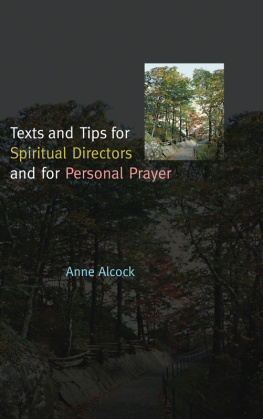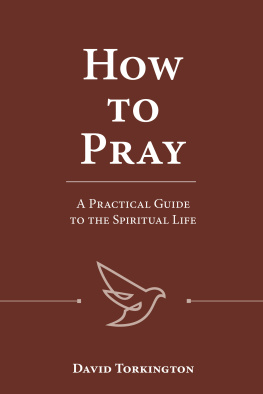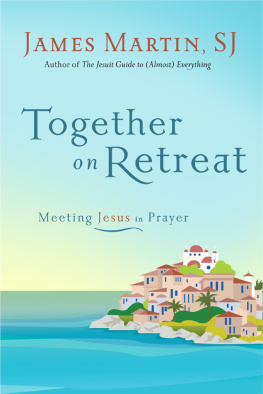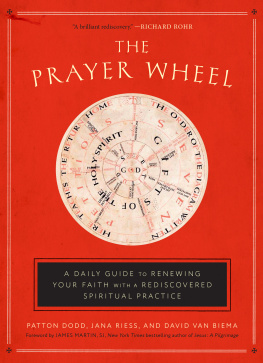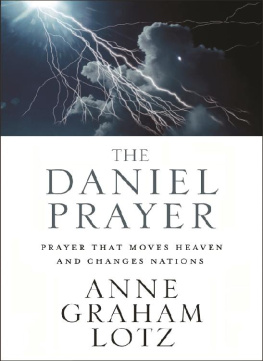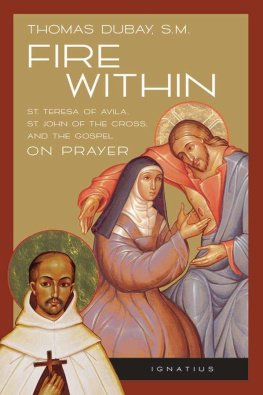Anne Alcock
Texts and Tips for
Spiritual Directors
and for personal prayer

First published in 2006 by
The Columba Press
55A Spruce Avenue, Stillorgan Industrial Park,
Blackrock, Co Dublin
This edition 2012
Cover by Bill Bolger
Cover photo by Carol Dorgan
Origination by The Columba Press
Printed in Ireland by Gemini International Ltd.
ISBN 978 1 8560 7761 3
Acknowledgements
I say thank you for those who first showed me the breadth and the depth which is possible in the ministry of spiritual direction, namely Gerard W. Hughes SJ, and Peter Van Breeman SJ.
More recently, for a supply of questions, suggestions, critique, proofreading, advice, or support, I say thank you to all the directees I have been privileged to accompany over the last thirty years.
Scripture quotations are taken from the New Revised Standard Version, copyright 1989, by the Division of Christian Education of the National Council of Churches of Christ in the United States of America. Used by permission.
Copyright 2006, 2012, Anne Alcock
Dedicated to Bonaventure Perquin OP and Frank J. Houdek SJ
Introduction
Tips are succinct. Tips do not stand alone. They do not involve over-explanation, since they are implicitly connected to a wider base of expertise or familiarity which provides their frame of reference.
Tips are sharable, in an over the garden fence kind of way. The tips here are offered out of thirty years experience, but do not presume in any way to be a final word, nor of course, are they totally comprehensive. What is presented are short answers to genuine questions which I have been asked over the years, have asked myself, and still hear people asking, both directors and directees. Whatever the answers, the questions seem valid at whatever stage we may be in this ministry. Many questions will be addressed in books and courses, but a few seemingly obvious but still important ones may fall between the two, and if so, I hope these brief reflections on practice will offer a further perspective from which to proceed.
As such, although they may be particularly relevant to the newer spiritual director, some may offer further reflection to those who have spent longer in this ministry a kind of fine-focusing.
As to the compilation of texts, my favourite occupation as a child was taking all the books out of my smallish bookcase, to spend some happy hours sorting them. Whether by category or author, colour or size, provided they were organised for practical use, I was happy (Then I would start on my brothers bookcases!). When I later learned that the word Bible loosely means librarysuggestions, not definitions. I trust, however, that the themes and sub-sections identify some of the psychological and spiritual involvement we can have with the living word of scripture, and as such will be useful in one-to-one sessions, retreats or prayer-group work. You will notice that the texts are fairly similar in length, and show only the most well-known verses. This is deliberate and based on the belief that we are probably sufficiently familiar with the content of most scripture passages to recognise this is the one after the first few lines. You will notice ff after many of the more truncated gospel stories this indicates that the whole text can then be sourced as appropriate. For easy reference, the main category headings are in themed alphabetical order. A chronological list of the texts is given as is an alphabetical list by scriptural subject. All the texts are taken from the NRSV, with one or two exceptions as indicated.
Alongside the texts and tips, I have included a few kernels of wisdom from the experience of some of the current well-known spiritual directors, that will hopefully offer an inspiring and energising echo to those of us engaged in the ministry of accompaniment, guidance, or as it is best known, spiritual direction. A term which perhaps does not best describe the role (since we know that spiritual direction concerns more than the spiritual and we know that we are less a director than an enabler), but as a working term, spiritual director does have accuracy if used to describe a life process. Spiritual Direction, as Sandra Schneiders puts it, is a process of establishing and maintaining a growth-orientation (that is, direction) in ones faith life.
Footnotes
. biblia conveying the sense of a multiple of books.
. Schneiders, Sandra, Selling All, Commitment, Celibacy and Community in Catholic Religious Life (Mahwah NJ: Paulist Press, 2001), p. 45
Index of Tips
Index of Texts
Spiritual-Life Themes
Tips
There is something unique about this type of relationship that requires a deep level of commitment of the spiritual director to the process of enabling the encounter between God and the directee to come alive in the session. There has to be a depth of commitment to the directee and a fundamental belief that God desires to reveal Godself to everyone. It is through grace that directors are able to achieve this balance. The ministry of spiritual direction is a charism.
THE QUESTIONS
Spiritual Direction or Spiritual Accompaniment?
Is there a difference?
Spiritual direction is the traditional term for what is now more often called spiritual accompaniment (Similarly, a Directed Retreat is now more often called an Individually Guided Retreat IGR). Centuries back, spiritual direction meant placing oneself in docility, if not actual obedience, under the direction of a cleric or monk (cf. St Teresa of Avila, who spoke regularly with, and of, her spiritual directors). Anchorites and Abesses, also sometimes took on the role of directing. This has now broadened to include many religious and lay persons who feel called to the work of spiritual accompaniment.
If there is a subtle inner shift beyond the mere change of name, it is more overtly about submission to the Direction of God within the persons life as mutually interpreted, rather an unquestioning submission to a director who tells his directee what to do. Hence the emphasis is less about giving advice or giving a talk than listening and attending to the signs of Spirits leading, within the accompanee, as a whole person, rather than only as a soul.
Grounded in the churchs spiritual tradition, the director/accompanier will, as always, be committed to developing their own personal spiritual life and working with their own life-struggles. From that basis and with training, she/he will be able and willing to accommodate psychological differences as well as a persons individual approach to God and prayer. Accompaniment may include suggestions, possible interpretations, respectful guidance if required, and the sharing of useful spiritual resources, but all within that context of mutual exploration and humble listening-out for Gods revealed Presence, Message and Direction, in the persons life.
What do I need to become a spiritual director?
A phrase that comes to mind is a sense of call, which implies something rather different from simply a career option. There may be a background in spirituality, theology, or counselling, and one essential is the experience of being in spiritual direction, and of course maintaining an ongoing personal relationship with God.
Does the word holistic fit in with being a spiritual director, or is it mostly scripture?
The word holistic is what we now understand as lived experience body, mind and spirit. Ways of being responsive to, and attentive to the God-in-all-things, others and oneself is what the spiritual life is about. We will experience Gods presence in many ways, through nature, movement, dance, poetry, art, companionship, intimacy; in the sacred writings of our tradition, and in liturgies and ritual. Increasingly many Christians are also reading the wisdom-words of other religious traditions. In this book, the emphasis is on texts from the Judeo-Christian tradition, Old and New Testaments, as a template against which we can find our own life experience, and pray and act out of that. And to be authentic, that living out will always be holistic.

